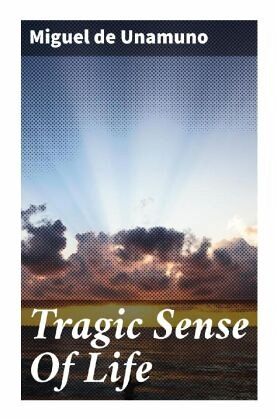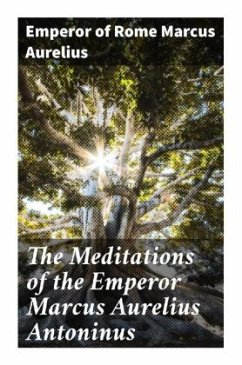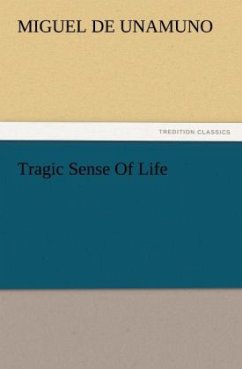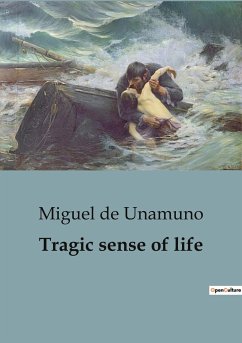
Tragic Sense Of Life
Versandkostenfrei!
Versandfertig in 6-10 Tagen
9,99 €
inkl. MwSt.

PAYBACK Punkte
5 °P sammeln!
In "Tragic Sense of Life," Miguel de Unamuno meditates on the existential dilemmas intrinsic to human experience, offering a poignant exploration of the tension between faith and reason. Written in a unique blend of philosophical treatise and literary narrative, Unamuno's work challenges readers to confront the inherent contradictions of life. He draws upon a diverse array of influences, intertwining elements of Spanish philosophical thought, existentialism, and even mysticism, to convey the profound struggles of individuality and mortality faced by humankind. Miguel de Unamuno, a prominent fi...
In "Tragic Sense of Life," Miguel de Unamuno meditates on the existential dilemmas intrinsic to human experience, offering a poignant exploration of the tension between faith and reason. Written in a unique blend of philosophical treatise and literary narrative, Unamuno's work challenges readers to confront the inherent contradictions of life. He draws upon a diverse array of influences, intertwining elements of Spanish philosophical thought, existentialism, and even mysticism, to convey the profound struggles of individuality and mortality faced by humankind. Miguel de Unamuno, a prominent figure in the Spanish Generation of '98, was deeply affected by the social and political upheaval of his time. His background as a philosopher, writer, and educator fueled his contemplation of identity and existence. Unamuno's personal experiences, including his encounters with loss and crisis of faith, served as catalysts for the deep existential inquiries presented in this work. His insightsreflect a longing for a deeper understanding of life amidst uncertainty. For readers seeking to grapple with the complexities of existence, "Tragic Sense of Life" is an essential text. It invites us to embrace the absurdities of life while finding meaning within the anguish of our existence. Unamuno's profound reflections resonate still today, making this book a timeless exploration of what it means to be human.












